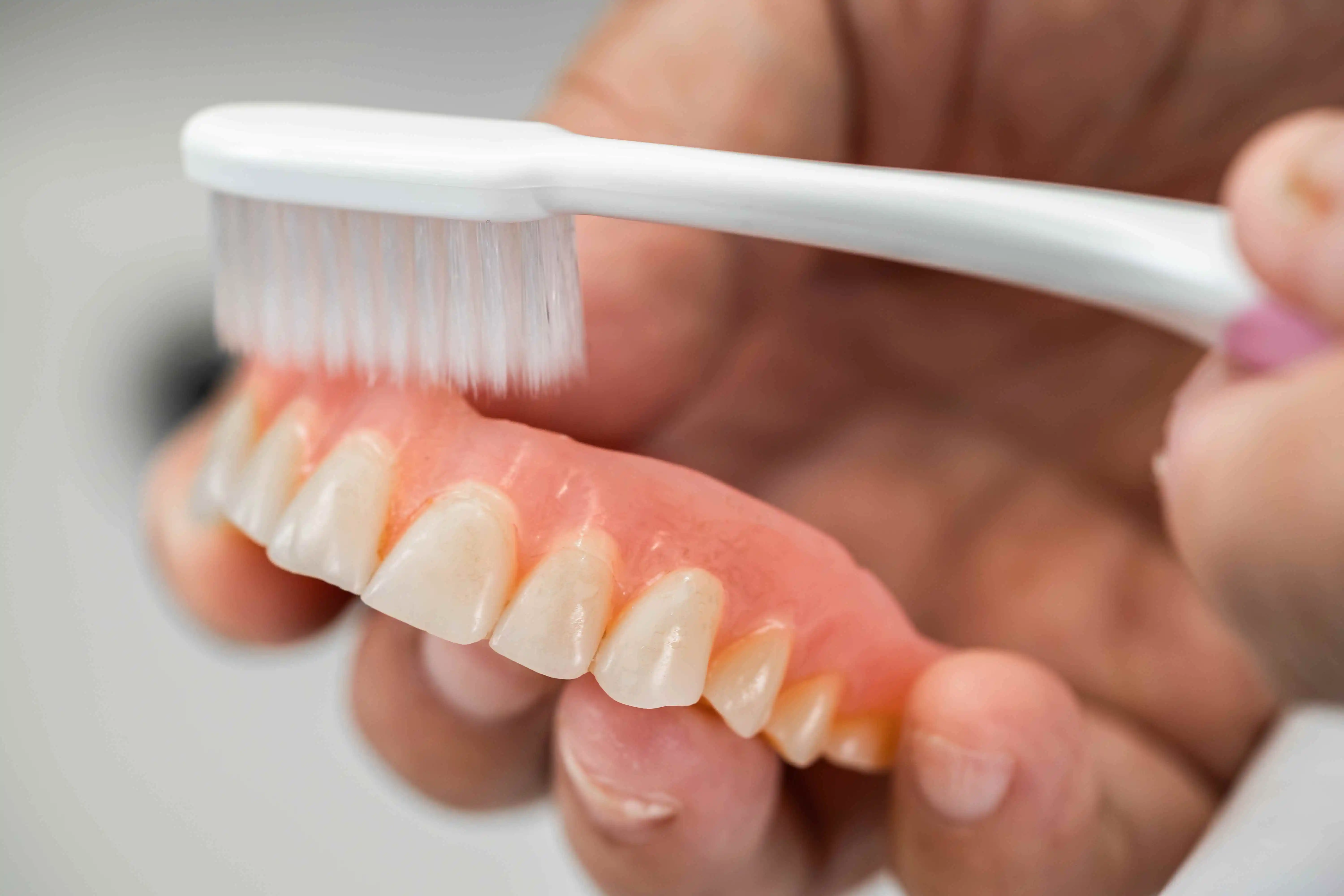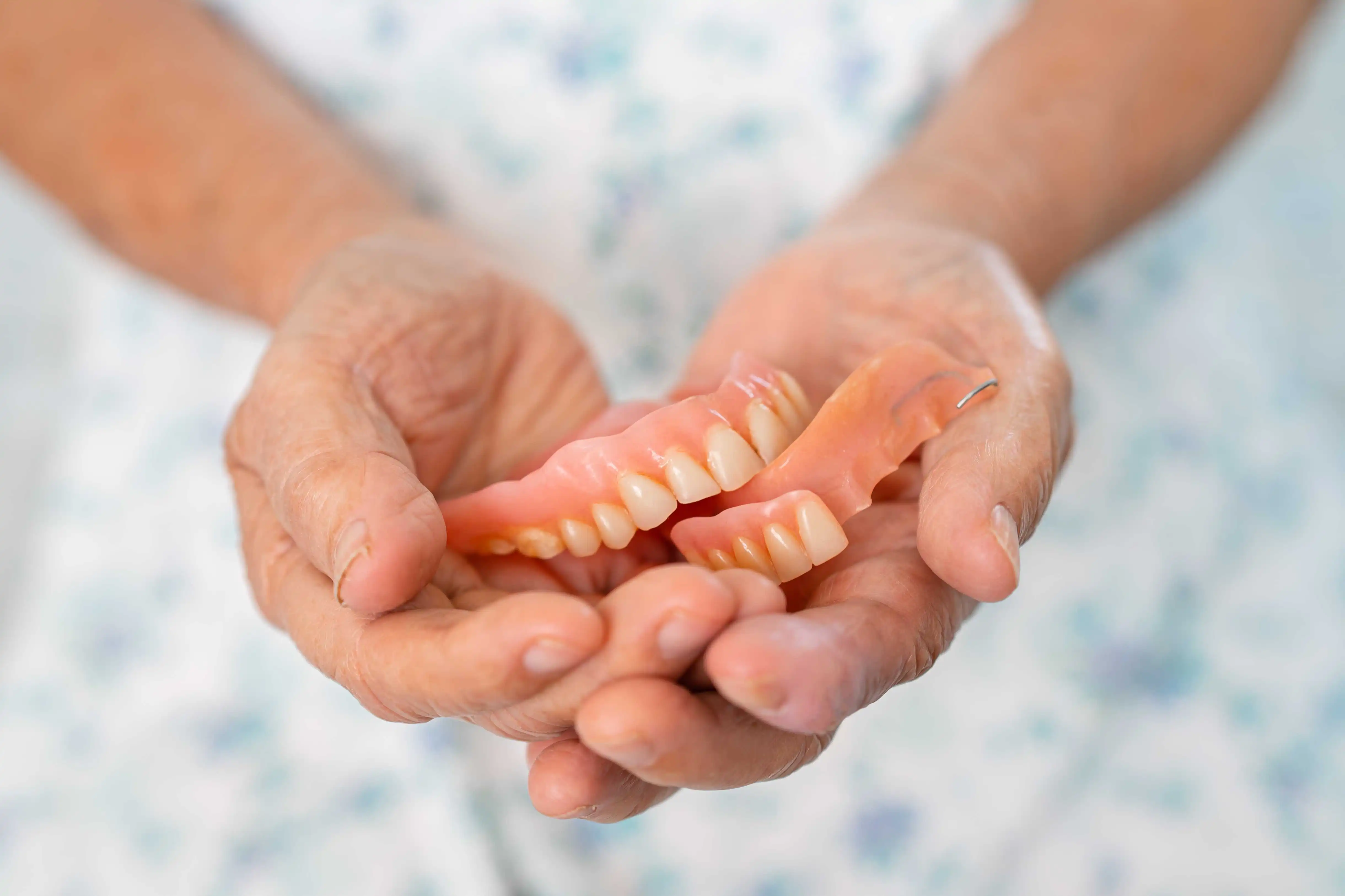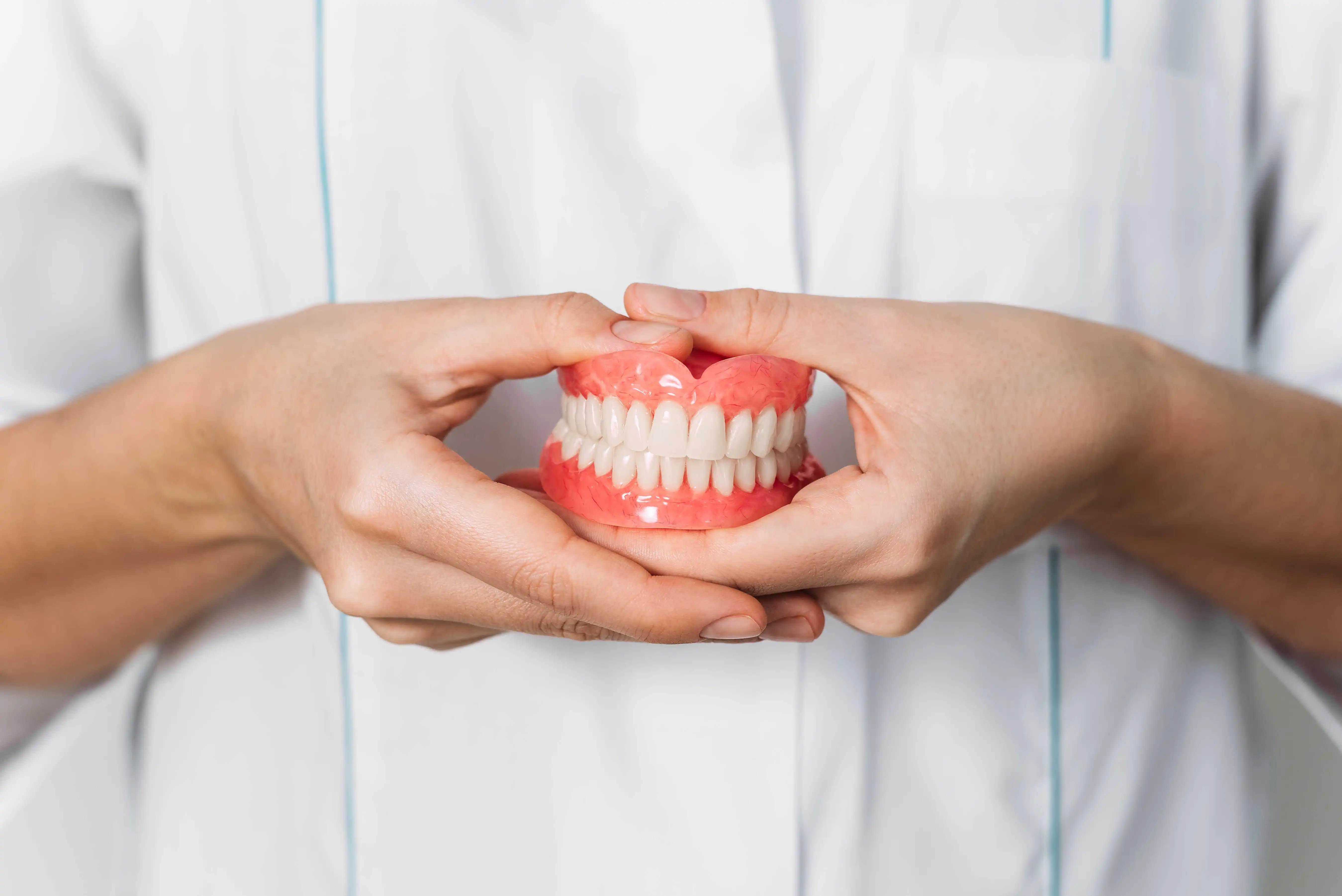A lovely smile can cheer up those around us and illuminate a space. But what happens when tooth loss compromises that smile? Thankfully, folks who have lost their teeth can find relief with dentures. But knowing how to care for dentures is crucial to keeping them looking good and extending their lifespan.
More than 36 million Americans lack teeth (are edentulous), and 120 million are missing one or more teeth. Dentures are worn by about 90% of edentulous people, and it is thought that dentures are created for about 15% of the edentulous population every year.
Maintaining good dental health and keeping your dentures in top condition need careful cleaning, handling, and maintenance.
What are Dentures?
Dentures are removable dental items used to replace lost teeth. They improve your chewing and speaking abilities.
Not only can dentures provide a functional replacement for missing teeth, but they can also improve the appearance of your smile and enhance your overall look. Some people may use terms like false, artificial, or fake teeth to refer to dentures. Dentists that specialize in tooth replacement are known as prosthodontists.
Types of Dentures
Your healthcare provider will propose the optimal denture type. Your provider may employ denture types such as:
- Complete dentures are supported by the gums. Dentures can replace a complete set of teeth on either the upper or lower gums.
- Partial dentures are used as a replacement for one or more missing teeth. Dentures are attached to existing teeth or, in some cases, dental implants (titanium screws).
- Fixed partial dentures, often known as dental bridges, are permanently attached to neighboring teeth. A dental professional can only remove a fixed partial denture or bridge.
How to Care for Dentures – Do’s & Don’ts to Remember

If you take excellent care of your dentures, they will last longer and fit better. Keep the following factors in mind to keep your dentures in good condition:
Clean Dentures Daily
Brush all surfaces of the dentures with a soft-bristle denture brush created specifically for cleaning dentures and water, being careful not to bend any attachments. It’s important to rinse your dentures with water after each meal.
While soaking dentures in specialist cleansers can be helpful, it’s crucial to remember that soaking alone is not enough to remove plaque. Therefore, it’s necessary to brush the teeth to ensure that all plaque is removed.
Handle with Care
Fill the sink with water or throw a folded towel over your dentures to avoid breaking them if they fall in. Allow your dentures to soak in cool water or a denture-cleaning solution while not in use to protect them from drying out.
If your dentures have metal attachments, avoid using cleaning solutions since they may cause the metal to tarnish. Dentures should not be soaked in hot water because they will deform.
Take Out Your Dentures Every Night
After you remove your dentures (full or partial) every night, the gum tissue beneath has the time to rest.
Things to Avoid While Taking Care of Dentures

Avoid using sharp objects
Anything abrasive or sharp should be avoided when cleaning your dentures. Using toothpicks and dental scrapers on dentures is not recommended as they can easily slip and cause injury to the mouth tissue.
Avoid using abrasive cleaning products
Brushes with stiff bristles, harsh toothpaste, and powerful cleansers should be avoided since they may harm dentures.
Forget about Tooth Whitening Pastes
Toothpaste labeled “whitening” frequently includes hydrogen peroxide, which does not affect denture tooth color.
Avoid Bleach-Containing Products
Any bleaching product can weaken and modify the color of dentures. Dentures with metal attachments or pieces should not be submerged in chlorine solutions since the metal will rust and discolor.
Avoid Using Hot Water
Hot or boiling water might damage your dentures; use warm water for maintenance.
When Eating, Avoid Tugging Motions
It may take some time to get acclimated to your dentures, but utilizing them correctly is critical as you learn how to eat with them. To avoid damage and chipping, avoid taking large mouthfuls of food, using tugging motions while biting, and biting down on hard items with your front dentures.
Don’t Forget About Your Dentures
Because your dentures are an essential part of your daily life, the most important aspect of denture care is to take appropriate care of them so that they can serve you well for as long as possible.
Don’t ignore or toss them around carelessly. To maintain a happy and healthy mouth, it’s essential to handle dentures with care and gentleness while keeping them sanitized and clean.
How Often Should I Clean My Dentures?

Dentists recommend cleaning your dentures at least once every day. Brushing your dentures twice a day is even better. Brushing your dentures when you wake up in the morning and before bed at night is a wonderful idea. Each night, immerse them in a mild soap or a tooth-cleaning solution.
While toothpaste should not be used to brush dentures, brushing your gums and tongue at least twice a day is important. It helps to maintain your gums healthy and prevents foul breath. Remember to brush and floss your remaining teeth daily if you wear partial dentures.
Rinsing your mouth with mouthwash is also beneficial to your oral health. You can either remove your dentures before using mouthwash or use mouthwash after removing your dentures.
Why Should I Soak My Dentures in Water At Night?
When not wearing your partial or complete dentures, always submerge them in water or denture solution. If not properly cared for, denture acrylic can dry up and lose shape over time. This can cause the dentures to become brittle and no longer fit properly. Dentures have small pores. Thus, keeping them moist is critical to ensuring the longevity of your dentures.
Conclusion
In conclusion, proper denture care is crucial for maintaining oral health and prolonging the lifespan of your dentures. Remember to follow the do’s and don’ts mentioned above to ensure their cleanliness, longevity, and your comfort. If you’re considering dentures or need professional assistance, don’t hesitate to visit University Ave Dental for expert guidance and personalized care. Your smile deserves the best!